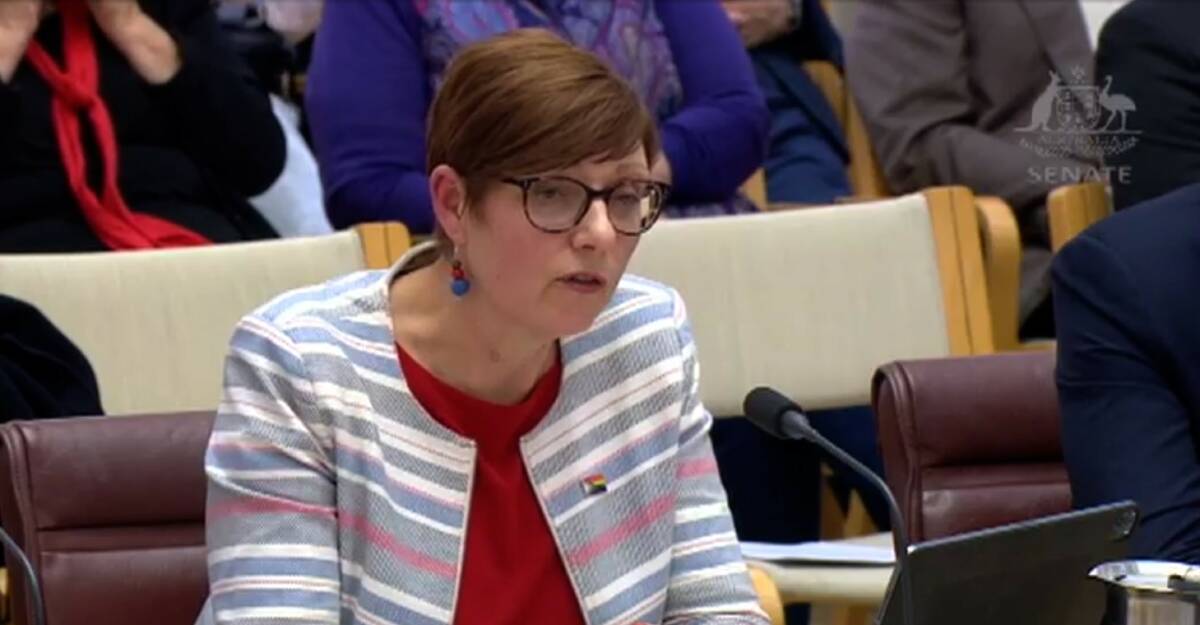Leaders of Calvary Health Care have made a blistering attack on the ACT government over the way it took over its former Bruce hospital.
The ACT government had "taken steps to avoid standard democratic processes," it was alleged by leaders of the former Catholic hospital which was taken over by Canberra Health Services in July.
Speaking to the Senate Legal and Constitutional Affairs Legislation Committee, they expressed a sense of betrayal by people they had imagined to be partners until the take-over decision came at them out of the blue.
"I thought we were partners, and I thought we would be treated that way," Ross Hawkins, the chief executive of Calvary Health Care ACT, told senators.
He was particularly aggrieved because he said the staff at the hospital were working very hard after a fire in an operating theatre led to the shutting-down of seven theatres and the maternity ward for a month.

He said that while his staff were "focusing on saving lives", the ACT government was secretly working on taking the hospital over.
"That's deeply upsetting. That's not what you expect from a partner," Mr Hawkins said.
The Calvary organisation's national director of strategy, Vanessa Janissen, talked of the "clandestine manner" of the take-over. She said it "bordered on unconscionable conduct".
"Calvary was working with the Territory in good faith, investing time and money to deliver a new hospital for Canberrans on the north side without knowledge of the Territory's alternative agenda," Calvary's Acting National Chief Executive, Kerryn Vine-Camp, said.
"Under the guise of legislation, the Territory acquired our business and terminated our contract, their trusted business partner of more than four decades, without any consultation or legal ramifications."
She added: "The Territory has adopted a frustrating transition process not open to scrutiny from Calvary or the public."
"It has demonstrably taken steps to avoid standard democratic processes to enable appropriate levels of consultation, genuine debate and rigorous scrutiny of its own legislation."
She said that there was still no agreement on what compensation the Calvary organisation whould get from the ACT government. "We have no certainty as to what that compensation will look like or when". The claim for compensation has to be made within a year of the take-over on July 3.
ACT Health Minister Rachel-Smith denied that the government had made the decision without democratic oversight.
She faced a hostile question from Senator Matt Canavan, asking the ACT minister what her reaction would be "if the government gave you six weeks to get out of your house to build a road".
She replied: "I don't think that's an accurate comparison."
There were also questions about whether staff felt pressure to transition.
Mr Hawkins told the hearing the ACT government did not finalise how redundancies would be paid out until just days before the takeover and this could not be communicated to staff until June 30.
Some staff had reported they felt pressured to transition to Canberra Health Services when they actually wanted a redundancy.
"By that point I think a lot of people were so worried and concerned about the process they had already filled in the relevant transition forms," Mr Hawkins said.
"I understand, anecdotally, now there are a number of staff who are frustrated because they wouldn't have taken up that opportunity."
Ms Stephen-Smith said she disagreed with the characterisation from Mr Hawkins.
Canberra Health Services chief executive Dave Peffer told the hearing there were meetings with unions on the day the transition was held about redundancy options.
He said it was conveyed that staff at Calvary were told not to engage with Canberra Health Services until after the bill had passed and then when it had passed Calvary pursued legal action saying the bill was unlawful.
Ms Stephen-Smith said Calvary had surveyed their workforce and only a small portion wanted a redundancy.
"It was not hundreds and hundreds of staff it was a small proportion of staff," she said.
Forty-six people took a redundancy and there were 2059 staff who transitioned.
The parliamentary inquiry is examining a bill put forward by Senator Canavan which would compel the ACT Legislative Assembly to hold an inquiry into the takeover.
The bill was allowed to bypass normal procedures and was able to pass before an inquiry is held.
Under standing orders for the Legislative Assembly, a bill is referred to a committee. The committee then considers whether it will hold an inquiry. If there is an inquiry, the bill cannot pass until the committee has handed down its report.
But bill was allowed to pass the ACT's parliament before a committee holds an inquiry. A committee can still hold an inquiry into the bill.







